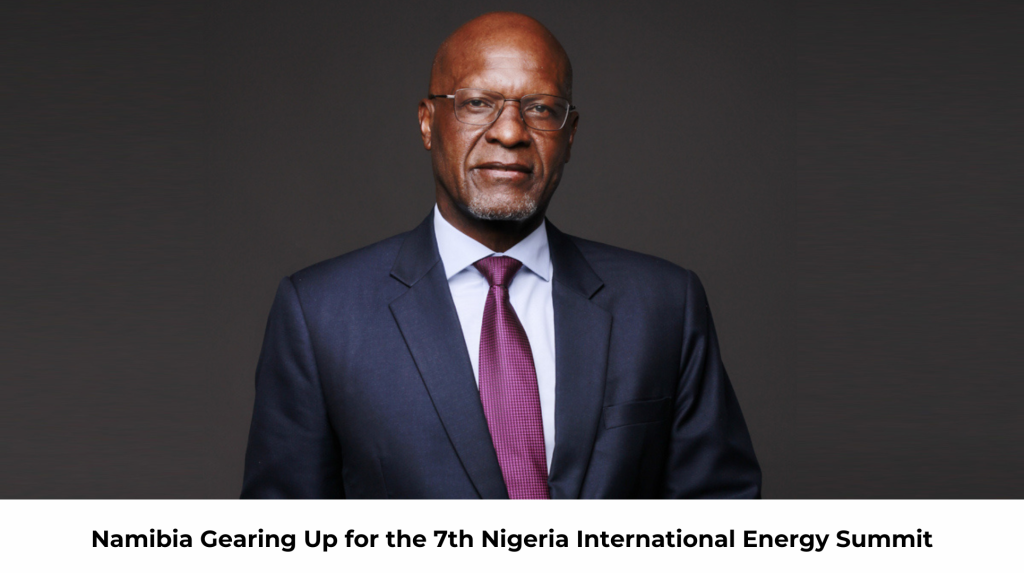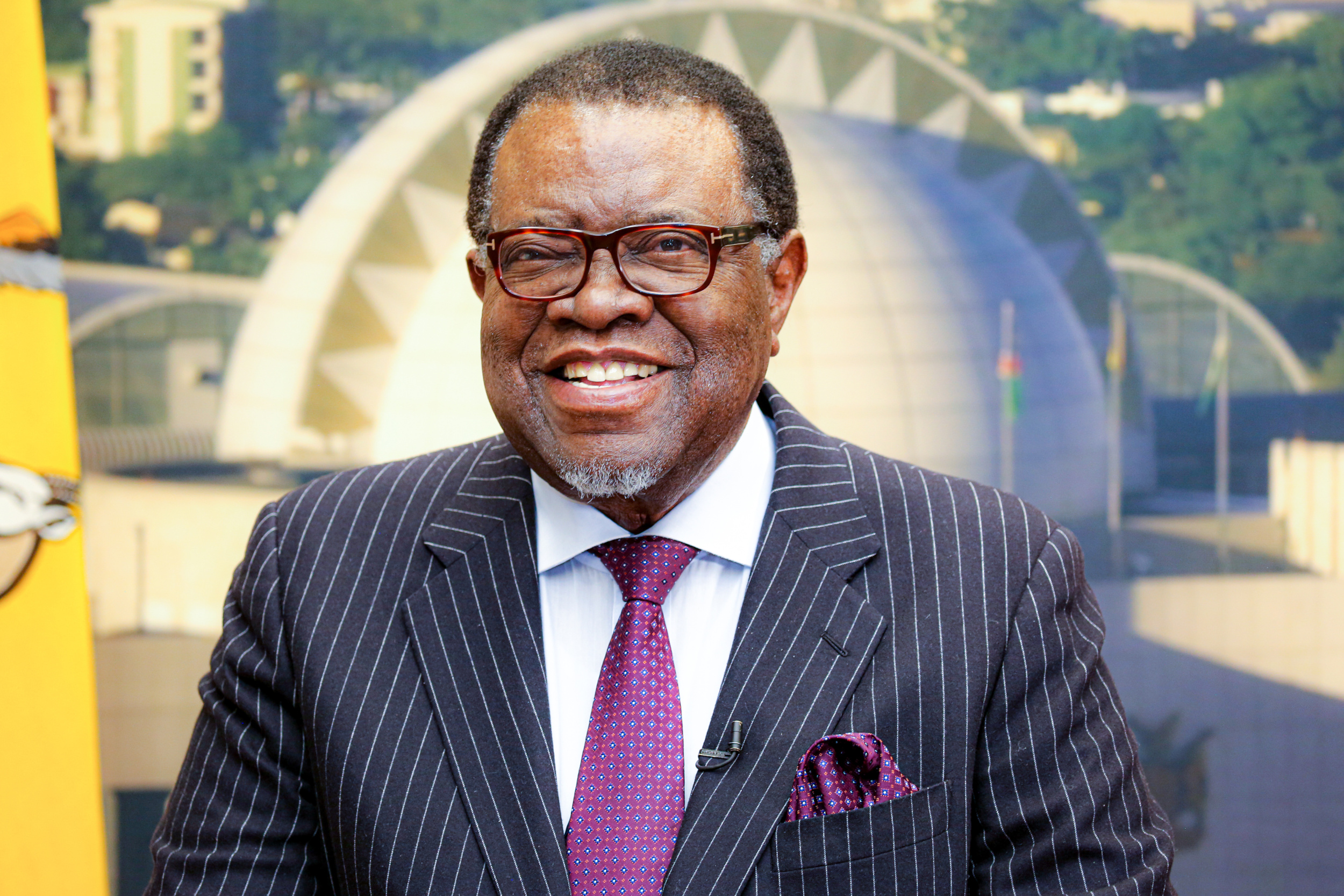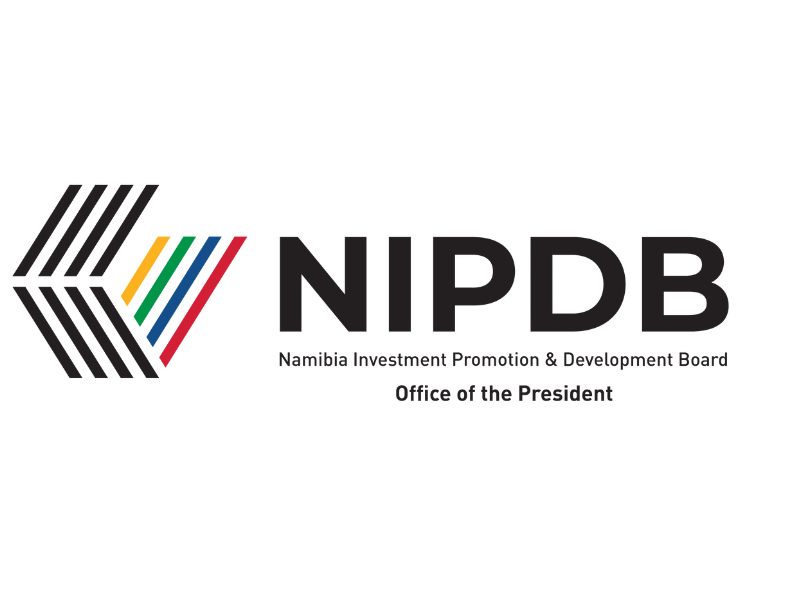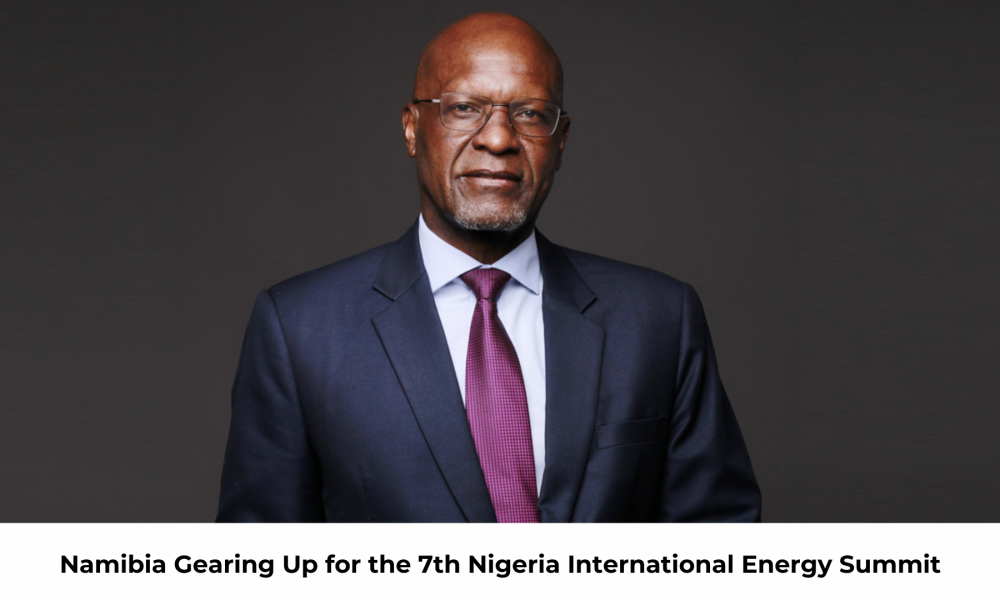- Home
- Namibia Investment Promotion and Development Board
- General News
Category: General News
Namibia’s restriction policy on importation of horticultural products: Part 1
- 12/12/2024
- Johan Steenkamp
- No Comments

Namibia’s restriction policy on importation of horticultural products: Part 1
The decision to impose seasonal restrictions on vegetable imports has sparked debate, with some in the SACU region labelling it an act of hostility.
However, when considered in the context of national food security, investment and job protection, Namibia’s Market Share Promotion (MSP) policy is not only justifiable but highly important. It is crucial to note that Namibia did not impose a “ban” but rather implemented restrictions on the importation of specific commodities.
Horticulture MSP policy instrument
The scheme is a temporary growth-at-home policy initiative implemented by the Namibian Agronomic Board (NAB) to boost horticultural production within Namibia. It mandates that importers of fresh fruits and vegetables purchase Namibian horticultural products equivalent to at least a minimum percentage of their total procurement in monetary value each quarter, as determined by the NAB Board based on recommendations from the National Horticulture Advisory Committee (NHAC).
The scheme was initially introduced at 5% in 2005, and this intervention has successfully increased local fruit and vegetable production to the current level of 47%. Over the years, the MSP has shown a steady upward trend: it reached 37.5% in 2012, 39% in 2013, 41.5% in 2014, 44% from 2016 to 2018, and has been maintained at 47% since 2019. As a result, local production now accounts for 47% of Namibia’s horticultural demand. The remaining 53% is imported, primarily from South Africa.
Recognizing that Namibia is a bona fide member of the World Trade Organization (WTO), this measure is applied based on most favoured nation (MFN) principles and does not target produce from any specific country.
National food security is a fundamental right
Food security is a cornerstone of national stability and prosperity, and it is a fundamental right enshrined in the WTO agreement on agriculture. Article 20 of the agreement recognizes the need for member states to protect food security when implementing agricultural policies. Therefore, these temporary restrictions on vegetable imports are in line with this provision, as it is aimed to boost local agricultural production to ensure a stable and sufficient food supply for its citizens.
The WTO also permits countries to implement measures necessary to protect human life or health, and Namibia’s actions are well within this framework. The country is reducing its dependence on imported food, thereby addressing the risks of potential disruptions in food supply chains—a concern that has become increasingly relevant due to global challenges such as pandemics, climate change, and geopolitical issues.
Promoting Investment in Local Agriculture
While this policy measure is critical to ensuring food security, it’s also a necessary tool to stimulate and preserve investment in the agricultural sector. It aligns with the broader objective of achieving sustainable development, a priority for many nations in the region. Investment in local agriculture allows building necessary infrastructure and capacity for long- term economic growth.
Job creation and economic stability
A crucial aspect of this policy instrument is its potential to generate sustainable employment. Namibia’s agricultural sector employs approximately 23% to 30% of Namibia’s workforce, making it the largest employer in the country. Therefore, prioritising local production allows the government to safeguard existing jobs while also creating new ones, thereby contributing to the reduction of poverty and inequality. Stability of the agri sector also has a positive multiplier effect on the broader economy.
Regional cooperation and fair trade
Critics suggest that Namibia’s actions could strain regional cooperation within the Southern African Customs Union (SACU). However, it is crucial to recognize that Namibia is not acting unilaterally. The SACU agreement itself permits member states to implement measures that protect their national interests, including food security. Article 18(2) of the SACU Agreement states:
“Member States shall have the right to impose restrictions on imports or exports in accordance with national laws and regulations for the protection of – (a) health of humans, animals or plants; (b) the environment; (c) treasures of artistic, historic or archeological value; (d) public morals; (e) intellectual property rights; (f) national security; and (g) exhaustible natural resources”. Namibia’ MSP policy is, therefore, a legitimate exercise of its rights under this regional framework. This is no legal loophole but rather a forward-thinking provision of the agreement.
Additionally, in the SACU Strategic Plan 2022/2027, Member States have agreed on principles that public policy interventions, tools, and criteria should be utilised to support the development of regional value chains (RVCs) in the following priority sectors: agro-processing (including leather and leather products, meat and meat products, fruits and vegetables), textiles and clothing, pharmaceuticals and chemicals (such as cosmetics and essential oils). Other key sectors include automotive and mineral beneficiation.
Moreover, Namibia remains committed to fair trade and regional integration. In building a robust agricultural sector, the country ultimately contributes to a balanced and equitable trade environment in the region. As the country develops its capacity to produce, it could become a reliable supplier to neighbouring countries, enhancing regional food security and economic cooperation.
Conclusion
The seasonal close border decision is a strategic policy measure to enhance Namibia’s own national food security, protect investment and employment in the sector. The goal is consistent with both SACU and WTO agreement provisions. Rather than being an act of hostility, the policy is a necessary step toward building a resilient and self-sufficient economy that can positively contribute to regional stability and prosperity. Namibia’s stance should be seen not as a challenge to regional cooperation, but as an essential component of it.
In part 2 of my views on the topic, I’ll unpack the “import ban” versus the so-called “localisation policy” being implemented in the territory South of our orange river and how the two serve same purpose of restricting trade.
Introduction
NIPDB’s Roberth Simon highlights Namibia’s seasonal restrictions on horticultural imports, highlighting their role in strengthening food security, boosting local agriculture, and fostering economic stability within international and regional frameworks.
NIPDB responds to The Namibian Newspaper article on visa applications
- 29/07/2024
- Johan Steenkamp
- No Comments
28 July 2024
The Namibia Investment Promotion and Development Board (NIPDB) wishes to respond to the newspaper article titled “Rich foreigners eye Namibian farms” which was published in The Namibian newspaper on Friday, 26 July 2024.
Background
The NIPDB is mandated to promote and facilitate investment by foreign and Namibian investors and coordinate MSME activities across all levers of the economy, to contribute to economic development and job creation. The NIPDB aims to position Namibia as a preferred investment destination, leveraging its natural resources, strategic location, and business-friendly policies.
As a key driver of Namibia’s diversification strategy and agency entrusted with coordinating the realisation of a private sector led and inclusive economic growth, the NIPDB actively promotes Namibia as a premier investment destination. Our efforts on economic diversification are focused in drawing investments into non-traditional sectors like global and business services, technology, and manufacturing in order to reduce heavy dependence on a few sectors such as mining, tourism and agriculture.
Additionally, the NIPDB’s role in job creation and infrastructure development is crucial for fostering a business-friendly environment and improving living standards. Through policy advocacy, the NIPDB further collaborates with the government to maintain investor-friendly laws, regulations and processes, enhancing Namibia’s competitiveness and ease of doing business.
It is worth noting that Foreign Direct Investment (FDI) remains one of the vital tools for measuring performance in this regard and provides a clear quantitative measure of how successful the NIPDB is in discharging its responsibility. Additionally, the number of FDI projects reflects the confidence and interest of foreign businesses in Namibia’s economic environment thereby attracting further investments. However, we are cognizant of the fact that FDI needs to be attracted in a responsible and sustainable manner. In this regards, in our evaluation criteria for investors, we consider components such as value of investment (direct and possible multiplier effect), jobs to be created (direct, indirect and induced), expected revenue earnings with focus on revenue earned from export, expected contribution to treasury, total assets owned and prior experience, other possible opportunities that will be offered by the investor to Namibia in terms of branding, market access, capacity building as well as direct/indirect support to Namibian MSMEs. It is unfortunate that The Namibian attributed to the NIPDB a misleading quote “… and they want permanent residency to buy Namibian retirement farms” was attributed to the NIPDB” in their articles of Friday 26 July 2024 entitled “Rich foreigners eye Namibian farms”. The NIPDB has never advocated for a general application for a group of applicants to the MHAISS. The institution supports individual applications and usually sets out the specific contribution or potential contribution by such an investor to Namibia.
The Desert Visa Programme
While investment projects are critical for success, equally important is attracting institutional investors and owners of capital who will provide access to funding required to drive this growth. One of the vehicles used is a Golden Visa Programme (GVP). GVPs have been instituted by various countries who through these types of programmes have not only attracted capital but have also attracted much needed skills to grow their economies. Major economies such as the UAE, Hong Kong, United States, Singapore, and Switzerland, have leveraged well-crafted Golden Visa Programmes and are a testament to the value of investment-based migration.
Golden Visas typically target high net worth and talented individuals who contribute to economic growth through direct investments, increased consumer spending, imparting their skills and knowledge as well as philanthropy. Their investments often lead to local job creation and increasing the tax base.
Given these global trends, the High Level Panel on the Namibian Economy (HLPNE) proposed for Namibia to develop its own Golden Visa Programme. As a result, the second Harambee Prosperity Plan (HPP II) under the Economic Advancement pillar, mandated the NIPDB to develop a Golden Visa Programme in conjunction with the MHAISS. This programme currently called the Desert Visa Programme (DVP) aims to incentivise and attract investors with skills, discretionary capital and ambitions to set up businesses and residency in Namibia. The underlying objective of this programme which was due for implementation in the second quarter of 2021/22 financial year is raising more than N$50 billion in investments during the HPP II period. The full development and implementation of this programme is however yet to be finalised and approved by Cabinet. One of the key outstanding outputs that will amongst others enable the DVP is the Migration Control Bill which is currently under development by the MHAISS.
While the Desert Visa Programme is being finalised, the NIPDB continues to attract investors and seek relevant visas/permits from MHAISS. The requests for such visas are limited to those allowed by the current Immigration Control Act 7 of 1993 and are applied for in accordance with provisions made in that Act.
The NIPDB One Stop Centre (OSC)
Since its inception, the NIPDB has made efforts to improve the ease of doing business in Namibia by facilitating a number of investment exploratory visits, assisting with special visa and permit applications, strengthening public-private trust and boosting productivity in identified key sectors.
Launched in October 2022 as part of the Business Facilitation Services offered by the NIPDB, the One Stop Centre (OSC) aims to improve service offering by the Public Sector to investors. These services include facilitating visa and permit applications for potential investors who meet our criteria. These services are designed to support and promote investment into Namibia while adhering to all legal and regulatory frameworks.
Nine Government Ministries and Agencies, namely Namibia Revenue Agency (Namra), Business Intellectual Property Authority (BIPA), Namibia Competition Commission (NaCC), Ministry of Home Affairs, Immigration, Safety and Security (MHAISS), City of Windhoek (CoW), Ministry of Mines and Energy (MME), Ministry of Environment Forestry and Tourism (MEFT), Ministry of Agriculture Water and Land Reform (MAWLR) and Namibia Industrial Development Agency (NIDA) have collaborated with NIPDB to deliver efficient service to investors and ensure improved investment facilitation services in the OSC.
Conclusion
The NIPDB can confirm that we have approached the Ministry of Home Affairs, Immigration, Safety and Security (MHAISS), along with numerous other stakeholders, on numerous occasions to help facilitate potential investments into Namibia. The NIPDB remains committed to transparency and fairness in all its operations as it continues to uphold the highest standards of integrity in its processes. We will however not comment on specific details of investors’ applications and/or privileged and confidential correspondence between the NIPDB and our stakeholders.
Issued by
Nangula Uaandja
Chairperson and Chief Executive Officer
Contact Person
Titus Shivute, Manager: Marketing and Communications
Namibia Investment Promotion and Development Board
Telephone: +264 83 333 8630
Mobile: +264 81 146 8272
Email: titus.shivute@nipdb.com
Margareth Gustavo, Executive Director: Strategy and Branding
Namibia Investment Promotion and Development Board
Telephone: +264 83 333 8630
Mobile: +264 81 1254 359
Email: margareth.gustavo@nipdb.com
Namibia Gearing Up for the 7th Nigeria International Energy Summit
- 27/02/2024
- Johan Steenkamp
- No Comments

Namibia is gearing up to make its mark at the upcoming 7th Nigeria International Energy Summit (NIES) in Abuja, Nigeria from 26 February to 1 March 2024. Led by the Minister of Mines and Energy, Honourable Tom Alweendo and supported by the Namibia Investment Promotion and Development Board (NIPDB), a business delegation with interests in participating in the upstream oil and gas services sector will be representing Namibia’s interests at this esteemed event.
The NIES has established itself as a prominent platform for African nations to engage with the global energy community, leveraging on the successes of previous editions to foster collaboration, knowledge exchange and investment opportunities. Namibia’s participation underscores its commitment to learning from Nigeria’s journey in energy development, particularly in unlocking local content creation and driving socio-economic growth.
A highlight of the summit will be the National Oil Companies (NOCs) Forum, which will bring together CEOs and key stakeholders from various African NOCs. Under the sub-theme “Sustainable Strategies for Energy Leadership: Navigating Security, Transition, and Finance in a Changing World,” this session is poised to shape the future of the energy sector across the continent.
On the sidelines of the summit, the NIPDB will host two key events:
NIES-Namibia B2B Forum 2024
Date: Wednesday, 28 February 2024
Time: 14:00 – 19:00
Venue: Abuja (Location to be confirmed)
The Business-to-Business (B2B) networking event aims to foster collaborations between Nigerian and Namibian businesses. By providing a platform for networking, knowledge sharing and partnership building, the forum seeks to promote market access, investment opportunities and technological advancements between the two countries.
Discussions will also focus on Namibia’s energy ambitions and investment opportunities in exploration. Through interactive sessions, participants will gain valuable insights into potential partnerships and avenues for growth.
Invest in Namibia Forum
Date: Thursday, 29 February 2024
Time: 09:30 – 13:00 pm
Venue: Abuja (Location to be confirmed)
This session will showcase Namibia as a premier investment destination across various economic sectors. Through presentations, panel discussions, and interactive sessions, the forum will highlight key sectors of interest and facilitate connections between potential investors and Namibian entities.
For inquiries and attendance, please contact:
Mr. Hafeni Motsi
Senior Energy Investment Analysis
hafeni.motsi@nipdb.com
+264 (0) 81 144 1476
Mrs. Theresa Sipiho
Investment & Export Promotion Attaché (Sub-Sahara Africa)
theresa.sipiho@nipb.com
+27664843005
NIPDB message of condolences following the untimely passing of H.E. President Dr Hage Gottfried Geingob
- 07/02/2024
- Johan Steenkamp
- No Comments

NIPDB message of condolences following the untimely passing of H.E. President Dr Hage Gottfried Geingob
On Sunday, 04 February 2024, the Namibian nation woke up to the painful news of the untimely death of His Excellency President Hage Gottfried Geingob, who passed away in a local hospital in Windhoek, surrounded by his wife and children.
The Namibia Investment Promotion and Development Board (NIPDB) hereby extends our most sincere condolences to President Geingob’s family and the rest of the Namibian nation.
President Geingob was a respected leader among his peers and the chief architect of Namibia’s constitution, which has remained the governing instrument and cornerstone of our democracy and political stability for over 30 years. In this difficult moment, we pay tribute to a visionary leader who embodied a palpable commitment to nation building, who led with humility and an enduring passion for the wellbeing of his people.
His Excellency Dr. Hage Geingob valued efficiency and stability. He has often emphasised that Namibia “is not a one-man show” and his legacy is rooted in his belief and ethos that Namibia is a country that is efficiently run through systems, processes and institutions. As we navigate this difficult time of transition, we assure our partners and stakeholders across the world of our commitment to upholding the legacy of President Hage Geingob and his commitment to the rule of law, transparency and accountability through efficient Government mechanisms.
Furthermore, we are honoured to serve H.E. President Dr. Nangolo Mbumba, who embodies the same principles and dedication as President Geingob, to advance Namibia as a viable investment destination. Namibia remains open for business, and the NIPDB’s mandate to promote and facilitate sustainable investments into the country, remains our enduring commitment and a fitting tribute to honour the legacy of our late president.
In this regard, we would like to assure all our stakeholders that the NIPDB’s operations will continue, with due sensitivity and respect to the current state of affairs in the country. In the coming days, we anticipate the government to make formal announcements pertaining to the national protocols to be observed during the period of mourning leading up to President Geingob’s funeral.
While we endeavour to maintain our usual level of service during this time, we request your patience in the event that disruptions are experienced, and we thank you in advance for your understanding.
Should you have any questions or concerns, please do not hesitate to contact:
Margareth Gustavo
Executive Director: Strategy & Branding
Phone: +264 (0) 83 333 8630
Mobile: +264 (0) 81 125 4359
Email: margareth.gustavo@nipdb.com
François van Schalkwyk
Executive Director: Investment & New Ventures
Phone: +264 (0) 83 333 8620
Mobile: +264 (0) 81 142 6216
Email: francois.vanschalkwyk@nipdb.com
Catherine Shipushu
Senior Manager: Communications, Marketing, Branding
Phone: +264 (0) 83 333 8636
Mobile: +264 (0) 81 1279069
Email: catherine.shipushu@nipdb.com
Issued by:
Nangula Uaandja
Chairperson and Chief Executive Officer

Get in touch with us
- Investment House
- Cnr. of Garten & Dr. A B May Streets
- Private Bag 12039
- Windhoek, Namibia
- info@nipdb.com
- +264 (0) 83 333 8600
Work Hours
- Monday - Friday
- 08:00 am - 05:00 pm





